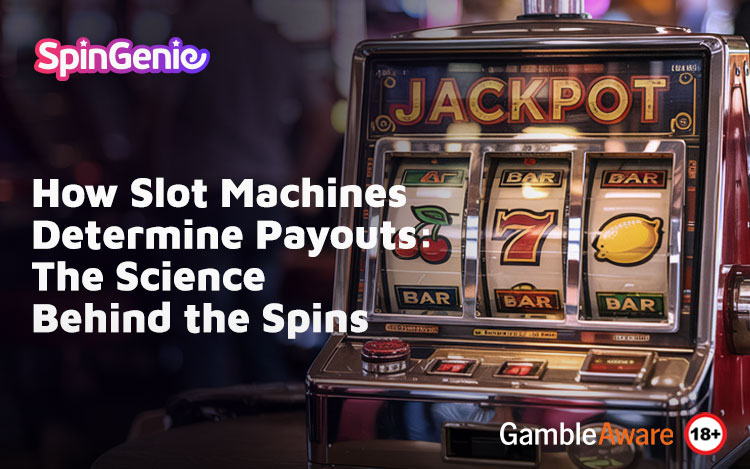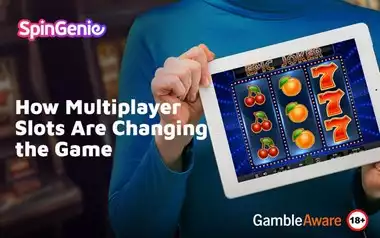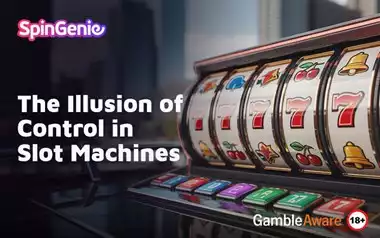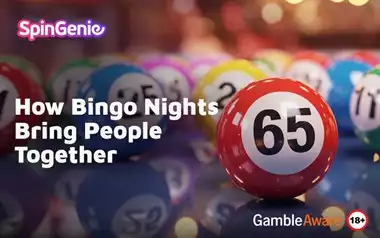Slot machines represent a fascinating intersection of probability theory, computer programming, and gaming psychology. While the spinning reels create an illusion of simplicity, modern slots operate on complex mathematical models that determine every payout with precision. When you play online slots, you're engaging with sophisticated software that has been rigorously tested to ensure fair and random outcomes. Understanding these underlying mechanisms doesn't guarantee wins—as slots remain games of pure chance—but it does provide valuable insight into how casinos maintain their edge while offering players genuine winning opportunities.
At the heart of every slot machine's payout system lies a carefully calibrated balance between player entertainment and mathematical probability. Game developers spend months designing payout structures that create exciting gameplay while ensuring the house maintains its theoretical advantage. This delicate equilibrium is achieved through several key components working in harmony, from random number generators to meticulously designed paytables. By examining how payouts work in slots, players can make more informed decisions about which games to play and how to manage their bankrolls effectively.
Random Number Generators: The Brains Behind the Operation
The cornerstone of modern slot machine fairness is the Random Number Generator (RNG), a sophisticated algorithm that produces thousands of number combinations every second. These computerized systems ensure that each spin's outcome is completely independent of previous or future results, making it impossible to predict or influence payouts. When you press the spin button, the RNG stops at a particular number combination that corresponds to specific reel positions, determining whether you win or lose.
RNG technology has evolved significantly since early mechanical slots. Today's systems undergo rigorous testing by independent agencies like eCOGRA and iTech Labs to verify their randomness and compliance with regulatory standards. These tests confirm that the systems produce truly unpredictable results and that the published Return to Player (RTP) percentages accurately reflect long-term game performance. The implementation of RNGs means that common slot machine myths about "hot" or "cold" machines have no basis in reality—every spin is an entirely separate event with fixed odds.
Return to Player (RTP): The Long-Term Picture
One of the most important concepts in understanding slot payouts is the Return to Player percentage. RTP represents the theoretical amount a slot machine will pay back to players over millions of spins. For example, a game with 96% RTP will, on average, return £96 for every £100 wagered over extended play. It's crucial to recognize that this percentage reflects long-term expectations rather than individual sessions—a player might experience significant short-term variance in either direction.
Game developers carefully calculate RTP during the design phase by establishing precise probabilities for each possible outcome. These calculations account for every symbol on each reel, the frequency of bonus triggers, and the potential payouts for all winning combinations. Regulatory bodies then verify these calculations before approving games for public release. The RTP percentage provides players with valuable information when comparing different slots, though it's important to remember that it says nothing about volatility—a separate characteristic that determines how those payouts are distributed.
Volatility: The Rhythm of Payouts
While RTP tells players how much a slot will pay back over time, volatility (also called variance) describes how those payouts are distributed. This critical factor determines whether a game pays out small amounts frequently (low volatility), large amounts rarely (high volatility), or strikes a balance between the two (medium volatility). Understanding volatility helps players select games that match their bankroll size and risk tolerance.
High volatility slots typically feature:
- Less frequent but larger payouts
- More pronounced winning and losing streaks
- Greater bankroll requirements for sustained play
- Most of the RTP concentrated in bonus features
Low volatility slots generally offer:
- More frequent but smaller wins
- More consistent gameplay experience
- Lower bankroll requirements
- RTP spread more evenly across base game wins
The choice between volatility levels depends largely on player preferences and goals. Those seeking entertainment value might prefer low or medium volatility games, while players chasing big jackpots often gravitate toward high volatility titles.
Paytable Structure and Symbol Values
A slot machine's paytable serves as the blueprint for its payout structure, detailing exactly how much each winning combination pays at different bet levels. Game designers carefully construct these paytables to achieve the desired RTP while creating engaging gameplay. Higher-value symbols appear less frequently on the reels, with their rarity balanced against their payout amounts.
Modern video slots often employ sophisticated weighting systems where:
- Common symbols (like card ranks) appear frequently but pay small amounts
- Premium symbols (themed icons) appear less often but pay more
- Special symbols (wilds, scatters) trigger bonuses or enhance wins
The arrangement of symbols across multiple reels creates complex probability calculations. A five-reel slot with 30 symbols per reel has 305 (24.3 million) possible stopping positions, each with carefully calculated odds. This intricate system ensures that while big wins are possible, they occur with precisely determined frequency to maintain the game's RTP.
Bonus Features and Their Impact on Payouts
Contemporary slot machines derive much of their entertainment value—and payout potential—from elaborate bonus features. These special rounds often account for a significant portion of a game's RTP, making their triggering frequency and payout structure crucial components of the overall design.
Common bonus feature types include:
- Free spins: Awarded when scatter symbols appear, often with multipliers or special wilds
- Pick-me games: Interactive bonuses where players select items to reveal prizes
- Cascading reels: Winning symbols disappear, allowing new symbols to fall into place
- Progressive jackpots: Networked prizes that grow until won
Game developers must carefully balance the frequency of these features with their payout potential. A free spins round that triggers too often would need smaller payouts to maintain RTP, while one that rarely activates could offer more substantial rewards. This balancing act creates the distinctive "personality" of each slot machine.
Progressive Jackpot Mechanics
Progressive jackpot slots represent a special category where portions of each wager contribute to a growing prize pool. These games operate on slightly different payout principles than standard slots, typically featuring:
- Lower base game RTP (often around 88-92%)
- Small percentage of each bet funding the progressive pool
- Requirements to bet max for jackpot eligibility
- Standalone or networked progressives
The mathematics behind progressive jackpots ensure that the overall RTP remains consistent whether the jackpot is won or not. When the jackpot reaches certain amounts, the game's total theoretical return might temporarily exceed 100%, creating positive expectation situations—though these remain extremely rare and short-lived.
Regulatory Oversight and Fairness
To protect players and maintain industry integrity, slot machines operate under strict regulatory oversight. Government agencies and independent testing laboratories enforce standards that ensure:
- RNG systems produce truly random results
- Published RTP percentages are accurate
- Games cannot be altered after certification
- Payouts occur as programmed
This rigorous testing process gives players confidence that slots operate fairly, with outcomes determined by chance rather than manipulation. Reputable operators like Spin Genie UK use only certified games from leading developers, providing transparency about game mechanics and payout structures.
Responsible Play and Realistic Expectations
Understanding how slot machines determine payouts ultimately helps players maintain proper perspective. While the potential for big wins exists, slots are designed primarily for entertainment, with the house always maintaining a slight mathematical edge. Key responsible gambling practices include:
- Setting strict loss limits before playing
- Viewing any winnings as a bonus rather than expectation
- Taking regular breaks to maintain clear judgment
- Balancing slot play with other casino games
- Utilizing operator tools like deposit limits and self-exclusion
By approaching slots with this informed mindset, players can enjoy the excitement of the games while minimizing risks. Remember that no system or strategy can overcome the fundamental randomness of slot outcomes—the healthiest approach focuses on entertainment value rather than guaranteed results. RNGs ensure fair outcomes in every spin. Experience it firsthand with Spin Genie UK’s slots.










